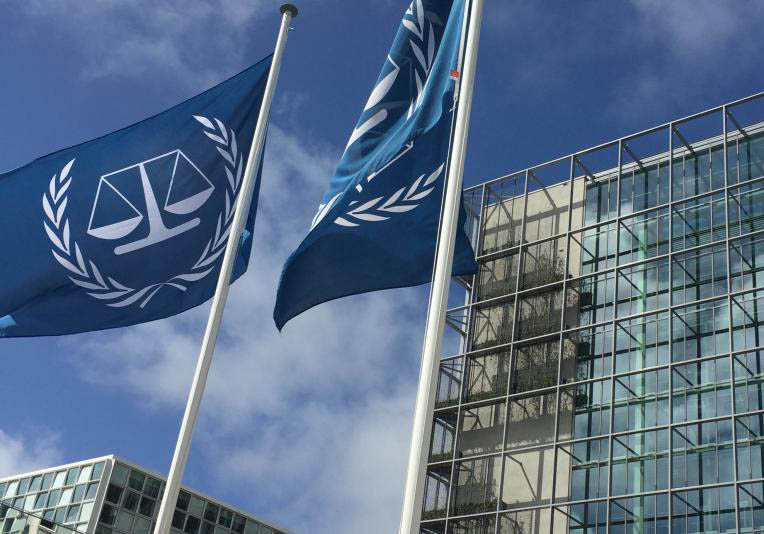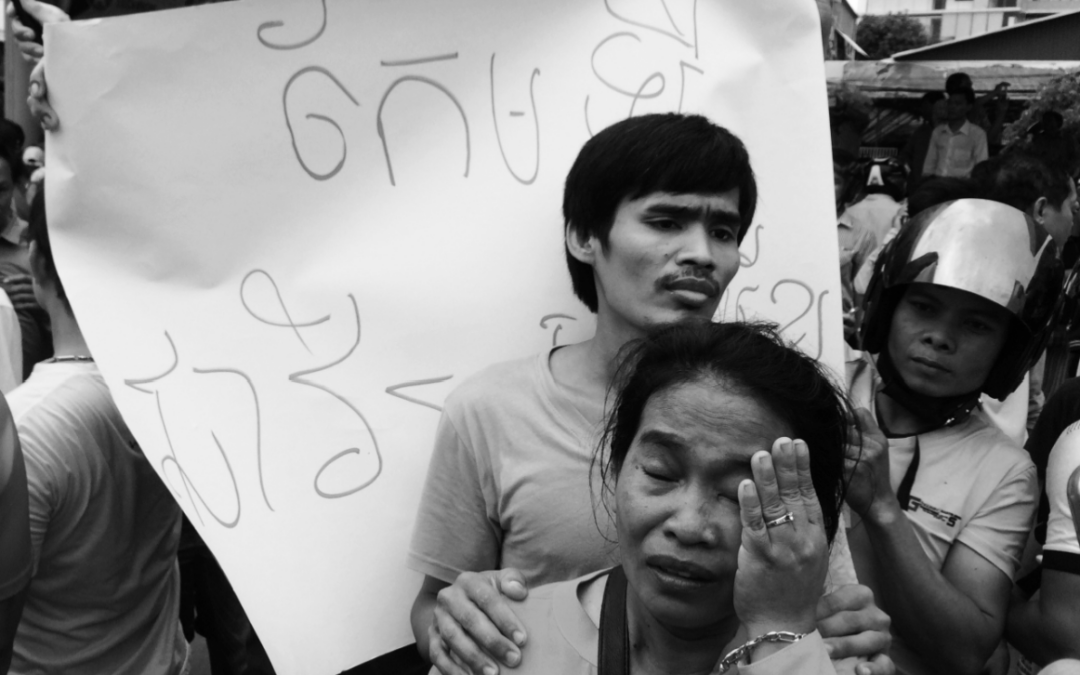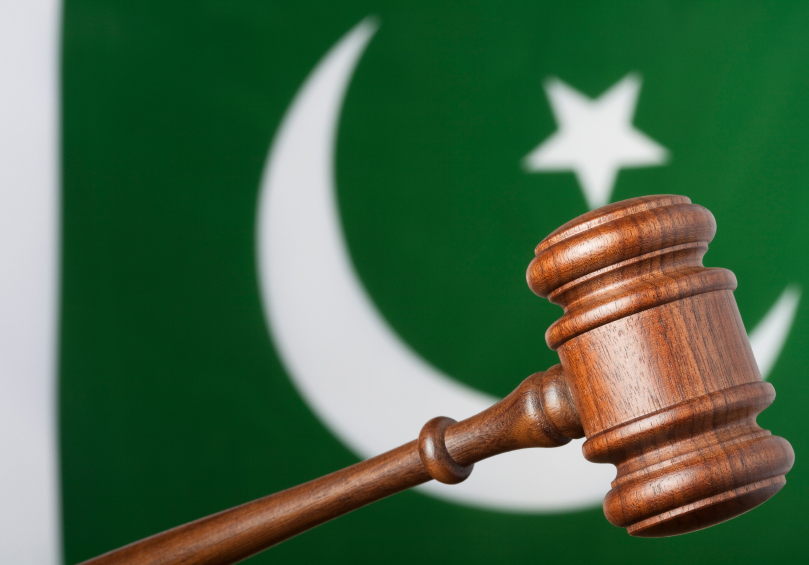
Apr 20, 2017 | News
Nepali authorities should immediately take effective steps to enforce the landmark Kavre district court murder verdict for the 2004 torture and killing of teenage Maina Sunuwar, the ICJ, Amnesty International, and Human Rights Watch said today.
On 16 April 2017, the Kavre district court sentenced three army officers to life imprisonment for the murder of Maina Sunuwar, a 15-year-old girl (photo) who was tortured in army custody and died as a result in February 2004.
Maina’s killing took place during the decade-long armed conflict between the Maoists and government forces that ended in 2006.
A court martial in 2005 found that Maina had died in army custody, convicted the three officers of torture and murder, but only sentenced the three perpetrators to six months’ imprisonment for minor offences, and promptly released them on grounds that they had already served the six months while confined to army barracks during the period of investigation.
“These convictions are an important development in Nepal’s slow-paced justice system’s ability to deal with grave conflict-era human rights abuses,” said Sam Zarifi, the ICJ’s Secretary General.
“What we need now is for the government to demonstrate its commitment to the rule of law and enforce them,” he added.
The trial before the Kavre district court took place in the absence of any of the four accused, despite repeated court summonses, including an arrest warrant, to notify them of the charges and compel them to appear in court.
The three accused army officers who were convicted of Maina Sunuwar’s murder, Bobi Khatri, Amit Pun and Sunil Adhikari, are no longer in the army and are believed to have fled abroad after the court martial proceedings.
The fourth accused, who was acquitted, Major Niranjan Basnet, is still in the army and was repatriated to Nepal from a UN peacekeeping assignment in Chad in 2009 due to the indictment against him.
Maina Sunuwar’s case has become emblematic of the shortcomings in Nepal’s justice system that have repeatedly frustrated efforts of Nepali conflict victims to secure justice for wartime abuses.
Maina Sunuwar’s mother first filed a report with the police in November 2005.
Since then, there have been numerous procedural and political hurdles, and a lack of cooperation by the military as it sought to protect its own.
An arrest warrant issued in 2008 was never enforced by Nepali authorities, with the police telling the court they were unable to trace them.
“Maina Sunuwar’s case was a true test case for the Nepal criminal justice system, but the government has a habit of simply ignoring court orders,” said Brad Adams, Asia director of Human Rights Watch. “This is the first sign of hope for victims after more than ten years since the end of the conflict—and now we need to see all those convicted of murder behind bars.”
The human rights organizations expressed concern that the government might refuse to seek to take measures to enforce the Kavre court’s verdict given its prior record on this and thousands of other conflict-era cases.
In a disturbing example, the police have yet to implement a 13 April 2017 Supreme Court order to arrest Bal Krishna Dhungel, a Maoist politician convicted of a 1998 murder.
Dhungel has yet to serve out his life sentence handed down by the courts.
The court gave the police a week to execute its order and present Dhungel before it.
“The Kavre district court has done its job, reaffirming the independence of the judiciary from political and military pressure, and holding perpetrators of serious crimes committed during the conflict to account,” said Biraj Patnaik, Amnesty International South Asia Regional Office Director. “Now the authorities must do their job by breaking with the practice of successive past governments that ignore and undermine the courts’ decisions. We expect the government to promptly implement this week’s ruling.”
Contact
Nikhil Narayan, ICJ’s South Asia Senior International Legal Adviser, e: Nikhil.narayan@icj.org
Sam Zarifi, ICJ’s Secretery General, e: sam.zarifi@icj.org

Apr 6, 2017 | News
South Africa is to appear before a scheduled hearing at the International Criminal Court on 7 April 2017 (ICC) in The Hague for a hearing on its failure to arrest Sudanese President Omar Hassan Ahmad al Bashir when he visited South Africa in June 2015.
The hearing, before the pre-trial Chamber of the ICC will consider whether South Africa was in breach of its obligations under the ICC Rome statute when it failed to effect the ICC arrest warrant on President Bashir.
The ICJ, represented by South African Justice Johann Kriegler, will be attendance observing the proceedings.
President Bashir has been indicted by the ICC on charges of genocide, war crimes and crimes against humanity in relation to atrocities committed from 2003 to 2008 in Darfur.
“The case is critical for ensuring the effectiveness of the ICC as an institution. The only means the ICC has of enforcing its orders is through the cooperation of States,” said Sam Zarifi the Secretary General of the ICJ.
“The failure to arrest President Bashir and the subsequent efforts to withdraw from the ICC Rome statute raise important questions about South Africa’s commitment to the fight against impunity in Africa and globally,” Zarifi added.
South Africa gave notice last October that it intended to leave the ICC, but this notice has been withdrawn, at least pending debate in Parliament.
The ICJ had filed a brief with the South African Parliament calling on South Africa to remain with the ICC Rome statute.
The brief was signed by retired South African Constitutional Court Justices Laurie Ackermann, Richard Goldstone, Johann Kriegler, Yvonne Mokgoro, Kate O’Regan and Zak Yacoob.
It was co-signed by Navi Pillay, former United Nations High Commissioner for Human Rights, former judge of the ICC and former President of the International Criminal Tribunal for Rwanda (ICTR) and Wilder Tayler, then Secretary General of the ICJ.
Justice Zak Yacoob remarked that “pursuit of justice and pursuit of peace are complementary and mutually reinforcing objectives that South Africa will best achieve by remaining party to the Rome Statute of the ICC. Its not an either or situation. Protecting heads of States from justice whatever they do compromises peace too much.”
Contact
Arnold Tsunga, ICJ Director for Africa, t +27716405926 ; e: arnold.tsunga(a)icj.org
Background
South Africa was among the first States to ratify the Rome Statute of the ICC. It signed the Rome Statute on the day it was adopted, 17 July 1998, and ratified it on 27 November, 2000.
Both during the negotiations preceding the Rome Conference that established the Court in 1998, and at the Conference itself, South Africa played a leading role.
However, the events of June 2015 surrounding the arrival of President Omar al Bashir of Sudan in South Africa appears to have engendered a shift in South Africa’s posture, leading many observers to call into question the country’s commitment to international justice.
The failure by South African authorities to arrest and surrender President al Bashir to the ICC, although he had been indicted by the ICC for war crimes, crimes against humanity and genocide, led to the Southern Africa Litigation Centre (SALC) taking the government to court to compel it to fulfill its obligations both under the Rome Statute and the Implementation of the International Criminal Court Act 27 of 2002 (Implementation Act).
On 19 October 2016, the Minister of International Relations and Co-operation gave notice of South Africa’s intention to withdraw from the Rome Statute.
The Portfolio Committee on Justice and Correctional Services put out a call for submissions to be made to the Parliamentary Portfolio Committee on Justice and Correctional Services on the Implementation of the Rome Statute of the International Criminal Court Act Repeal Bill [B23-2016] to be made by 8th March 2017.

Mar 28, 2017 | News
Legislation adopted today by the Pakistani Parliament allowing civilians to be tried by military tribunals in secret proceedings is a serious blow to human rights and rule of law in the country, the ICJ said.
“The nationwide concern at a number of recent attacks in the country seems to have once again been misdirected toward a seriously flawed counter terrorism strategy that weakens the rule of law and the struggle for justice,” said Sam Zarifi, ICJ’s Asia director.
“Pakistan must reject this counter productive strategy and instead strengthen its judicial process and law enforcement in line with its domestic law and international obligations,” he added.
The Pakistani Parliament voted to amend the 1973 Constitution and the Army Act, 1952, to again allow military tribunals to try civilians who allegedly belong to “a terrorist group or organization misusing the name of religion or a sect” and are suspected of committing a number of offences, including: abducting any person for ransom; raising arms of waging war against Pakistan; causing any person injury of death; using or designing vehicles for terrorist attacks; creating terror or insecurity in Pakistan; and attempting, aiding or abetting any of these acts.
The use of military courts to try civilians is inconsistent with international standards.
The ICJ has also documented serious fair trials violations in the operation of military courts from January 2015 to January 2017, including: denial of the right to counsel of choice; failure to disclose the charges against the accused; denial of a public hearing; failure to give convicts copies of a judgment with evidence and reasons for the verdict; and a very high number of convictions based on “confessions” without adequate safeguards against torture and ill treatment.
“Militarizing the judicial process will not lead to justice and it will not effectively counter terrorism; this is the lesson from around the world,” Zarifi said. “It has not proven to do so in Pakistan in the past, and there is nothing to indicate that it will do so now.”
“Instead, secret military trials of civilians that flout even basic fair trial guarantees will further erode the rule of law and weaken the government’s role in providing justice and protecting the rights of people in Pakistan,” he added.
Contact
Sam Zarifi, ICJ Asia Pacific Regional Director (Bangkok), t: +66 807819002; e: sam.zarifi(a)icj.org
Reema Omer, ICJ International Legal Adviser for Pakistan (London), t: +447889565691; e: reema.omer(a)icj.org
Background
Military courts constituted under the 21st Amendment convicted 274 people in the two years during which they were in operation, from 7 January 2015 to 6 January 2017.
Of those 274 convictions, 161 people were sentenced to death and 113 people were given prison sentences. At least 21 people given death sentences have been executed by hanging.
The enabling legislation for these courts lapsed on 6 January 2017 pursuant to a two-year sunset clause.
The ICJ opposes the use of the death penalty under any circumstances as a violation of the right to life and freedom from cruel, inhuman or degrading treatment.

Mar 23, 2017 | News
Cambodia should continue to investigate the killing of prominent political commentator Kem Ley in order to address key aspects of the case that appear to have been inadequately investigated, said the ICJ, Amnesty International, and Human Rights Watch today.
On 23 March 2017, the Phnom Penh Municipal Court found Oeuth Ang guilty of the premeditated murder of Kem Ley on 10 July 2016 and sentenced him to life imprisonment.
Prior to the half-day trial, which took place on 1 March 2017, the authorities released almost no information about the investigation.
“The trial revealed that the investigation appeared to be deficient in several important respects,” said Kingsley Abbott, the ICJ Senior International Legal Adviser who observed the trial.
“Until there is an independent, impartial and effective investigation to establish whether anyone else was involved in the killing, the victims of this serious crime, including Kem Ley’s wife and children, will be unable to obtain justice,” he added.
Even the very identity of the defendant was at issue. At trial, Oeuth Ang maintained he is 39-years-old, unmarried, and named “Chuob Samlab” – which translates in English as “Meet to Kill” – from Banteay Meanchey province.
However, the prosecutor submitted that based on the fingerprint on the ID card of Oeuth Ang, he is satisfied that the defendant is in fact Oeuth Ang, married, born in 1972, from Siem Reap province.
“The proceedings may have established that Oeuth Ang pulled the trigger, but the investigation does not seem to have considered whether someone else loaded the gun,” said Champa Patel, the Amnesty International Director for Southeast Asia and the Pacific. “It is clear that the authorities want to close the book on this case and move on but failures in the investigation of this heinous act can only serve to compound the injustice already suffered by the family of Kem Ley”.
The hearing commenced at 8:40 and concluded at 13:00. After Oeuth Ang gave evidence, ten witnesses gave oral testimony including two Caltex workers, seven officials who were involved in the investigation in different capacities, and a doctor who examined Kem Ley’s body at the scene of death.
Official reports and the statements of several witnesses were also read into evidence, and the prosecution played eight videos from different locations, including one captured by a closed circuit television (CCTV) camera inside the Caltex station where Kem Ley was killed.
Kem Ley’s widow, who was named as a civil party, did not appear at the trial but her civil party statement was read into evidence.
“The authorities’ failure to investigate so many clear gaps in the defendant’s story and the court’s unwillingness to examine them suggest that a quick conviction rather than uncovering all involved was the main concern,” said Phil Robertson, Deputy Asia Director at Human Rights Watch. “Kem Ley’s family have been outspoken in their disbelief that Oeuth Ang was solely responsible for the murder, and the trial’s conduct lends credence to their skepticism.”
Contact
Kingsley Abbott, ICJ Senior International Legal Adviser for Southeast Asia, t: +66 94 470 1345 ; email: kingsley.abbott(a)icj.org
Cambodia-KemLey Verdict-News-Press releases-2017-ENG (full story, in PDF)

Mar 14, 2017 | News
The ICJ urged the Pakistan government to withdraw its proposal to reinstate and widen the scope of military trials for civilians.
“Bringing back military courts is an attempt to deflect attention from the real issue: the Government’s failure to enact reforms to strengthen the criminal justice system during the two years the 2015-2017 military courts were in operation,” said Sam Zarifi, ICJ’s Asia Director.
Bills to amend the Constitution of Pakistan and the Army Act, 1952, to extend the jurisdiction of military courts to try a wide variety of terrorism-related offences, were introduced before the National Assembly (lower house of parliament) on Friday, 10 March.
The “terrorism-related” offences include, among others: abducting any person for ransom; raising arms of waging war against Pakistan; causing any person injury of death; using or designing vehicles for terrorist attacks; creating terror or insecurity in Pakistan; and attempting, aiding or abetting any of these acts.
The new amendments are also applicable in all cases where the accused commit “grave and violent acts against the State”. The mandatory requirement to belong to a group that uses “the name of religion or sect”, as introduced by the 21st Amendment and corresponding amendments to the Army Act introduced in 2015, is no longer applicable.
“The expansion of military courts’ jurisdiction over all ‘grave and violent acts against the State’ creates the possibility that these courts could be used against a wide variety of people, including those who are legitimately exercising their rights to speech, association, and assembly,” added Zarifi.
According to the preambles of the bills, an “extraordinary situation” and a “grave and unprecedented threat to the integrity of Pakistan” still exist in the country, and military courts are being revived because they “yielded positive results in combatting terrorism” in the two years they were in operation.
“The military courts have not had any positive results in combating terrorism, given the country’s ongoing problem with acts of terrorism and armed insurgents,” said Zarifi. “Instead, military trials of civilians have further eroded the rule of law and weakened the government’s legitimacy in providing justice and defending the rights of people in Pakistan.”
Background
Military courts constituted under the 21st Amendment convicted 274 people in the two years during which they were in operation, from 7 January 2015 to 6 January 2017. Of those 274 convictions, 161 people were sentenced to death and 113 people were given prison sentences. At least 17 people given death sentences have been executed by hanging. The enabling legislation for these courts lapsed on 6 January 2017 pursuant to a two-year sunset clause.
The ICJ recalled that the use of military courts to try civilians is inconsistent with international standards.
The ICJ has documented serious fair trials violations in the operation of military courts including: denial of the right to counsel of choice; failure to disclose the charges against the accused; denial of a public hearing; failure to give convicts copies of a judgment with evidence and reasons for the verdict; and a very high number of convictions based on “confessions” without adequate safeguards against torture and ill treatment.
Contacts
Sam Zarifi, ICJ Asia Pacific Regional Director (Bangkok), t: +66 807819002; e: sam.zarifi(a)icj.org
Reema Omer, ICJ International Legal Adviser for Pakistan (London), t: +447889565691; e: reema.omer(a)icj.org









